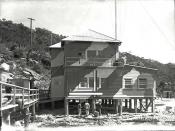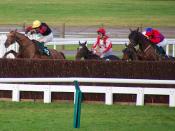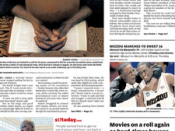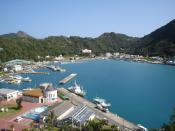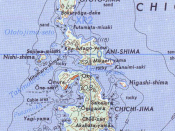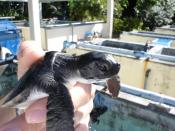Flyboys by James Bradley reveals for the first time ever an amazing story of nine American "flyboys" Navy and Marine pilots sent to bomb a Japanese communications towers ,then they were shot down. One of those nine was unbelievably rescued by a United States Navy submarine; the others were captured by Japanese soldiers on Chichi Jama and held as prisoners. Then they disappeared, the records of a top-secret military committee were sealed, the lives of the eight "Flyboys" were erased, and their families were left behind to wonder. Bradley search for the truth in this book took him from dusty attics in American small towns, to untouched government archives containing classified documents, to the heart of Japan, and finally to Chichi Jama itself.
Review by W.E.B Griffin called the book "a powerful compelling look at a tragic time in our history." Chichi Jima, a Japanese communications outpost 150 miles from Iwo, as the Marines invaded Iwo, carrier planes bombed Chichi Jima to serve the communications link.
Nine "flyboys' survived being shot down; one got picked up by an American Navy submarine. That one was George Herbert Walker Bush; the eight others got picked up by the Japanese. In the end all were executed, the livers of some of them became rations for the Japanese officers. Reviewers Harry Levins from St. Louis Post- Dispatch says James Bradley book was "a story is a gruesome one". He goes on to say Bradley expands on it to expand on the gruesome nature of the whole pacific campaign and now both sides came to be some nasty.
In the book Bradley blames Japanese militarism for the awful horrors done against wartime China and on a lower scale against any Americans who fell into any Japanese hands. The destiny of the eight POW's at Chichi Jima symbolizes the cruelty of the Japanese warrior; on the other hand, Bradley does not let the Americans off the hook. Bradley traces the history of the United States treatment of the Indians in the Plains war, the Mexicans in the Mexican - American war and the Filipinos in the Philippines Insurrection. Personally to me in Flyboys, Americans come out looking just a little better then the Japans. For example, Bradley talks about how in World War II American soldiers occasionally shoot at Japanese who survived sinkings.
Reviewer Harry Levins from St. Louis Post-Dispatch said that he found the book "oddly organized the story somewhat difficult to follow and the tone a touch preach". Levins also stated that Bradley overstates the role of air power in World War II. Reviewer from Booklist said "there are many brutally graphic passages about torture and slaying of the American prisoners, which may prove too strong for some readers, but Bradley succeeds in restoring dignity to American airmen", I personally felt Bradley had to be gruesome to make the reader feel what the prisoners felt.
My favorite chapter in James Bradley Flyboys was not the gruesome ones; however, the one on Carrier War. It describes the aircraft carriers that transported the "flyboys" to war. The carriers were similar to traveling in a small town; they had on board anything from a doctor to a barbers. To me that gave me insight into what it was like for the "flyboys" when they were on the move.
To me ,James Bradley in his book Flyboys makes the reader understand why thing happened the way they did between the United States and Japan, between victor and victim and between captor and captive. The book Flyboys hits home to me and the accounts Bradley describes will remain painfully long in my mind.
